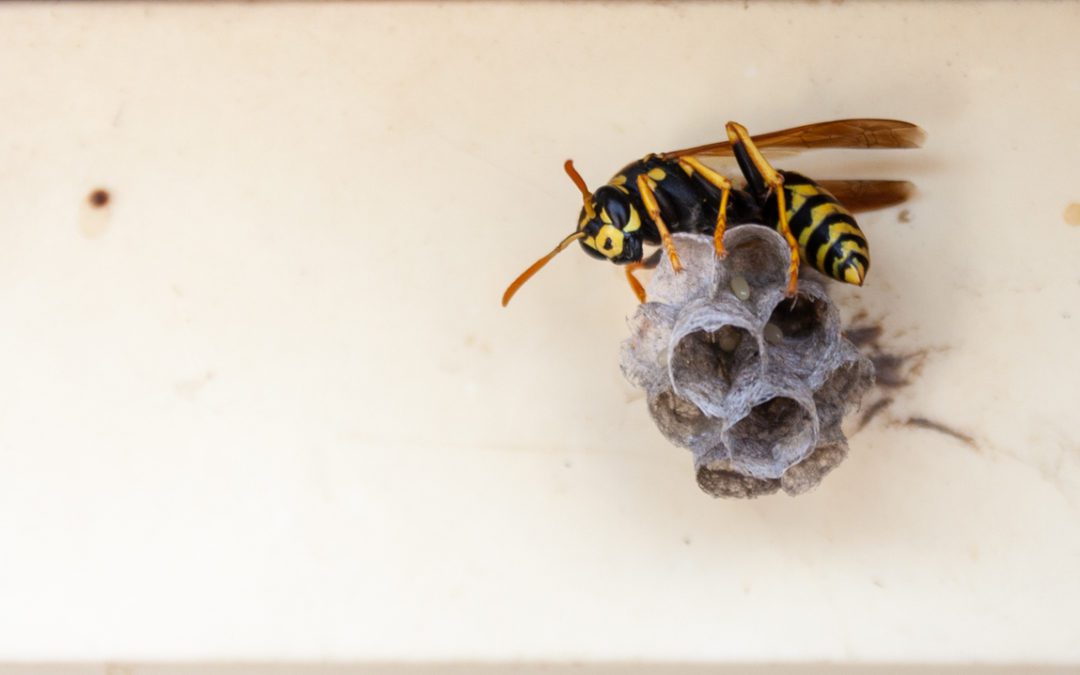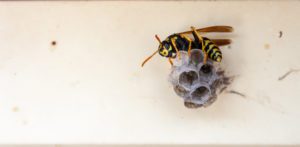If you’re someone who prides themselves on being a do-it-yourselfer, trying to remove a wasp nest unaided might seem like an appealing option. You would much rather handle home maintenance on your own, and it can be difficult to trust someone to treat your property with the same care and consideration that you give it. When trying to decide whether or not to attempt do-it-yourself wasp removal or to call in a professional, there are some questions you should ask yourself.
Where is the nest located?
If the wasps have built their nest in an area where they aren’t likely to interact with people, then you may opt to simply leave it where it is. Nests that are up in trees or far back on the property are unlikely to cause a problem, and their presence may even have a positive effect on your yard’s ecosystem. However, if the colony is living in a high foot traffic area, you and your family are in danger of being stung. Wasps and hornets favor areas like eaves and porch roofs that are high off the ground and require a ladder to access. If you aren’t properly trained to use a ladder, it can put you at risk for falling and seriously injuring yourself.
How large is the nest?
If you absolutely must handle the situation on your own, it is best to take action when the nest is no larger than a silver dollar. Once it grows bigger than that, the colony has expanded enough that do-it-yourself wasp removal is not a good idea. Stinging insects have difficulty navigating without light and won’t be nearly as active at night, so always approach the nest after dark.
 Do I want to risk being stung?
Do I want to risk being stung?
Social species of stinging insects like yellow jackets, bald-faced hornets, and paper wasps are extremely protective of their queen. If at any time they feel that their nest is being threatened, they will attack and try to eliminate whatever that threat is. Unlike bees who usually die after stinging, wasps and hornets are able to sting many times, making their assault that much more dangerous. These stings can cause anaphylactic shock and be life-threatening to those with stinging bee, wasp, and hornet allergies.
Who can I call for wasp removal help?
ABC Wildlife’s technicians are specially trained in the removal and management of stinging insects. They have the proper education, equipment, and experience to eliminate the problem on your property safely and thoroughly. And once the nest has been removed, our bee, wasp, and hornet experts can give you suggestions to help keep the stinging insect presence on your property to a minimum as well as offer a preventative maintenance program that prohibits wasps and hornets from building their nests on your home. With these applications, we can guarantee a stinging insect-free home until spring of the next year. Do-it-yourself wasp removal may seem like a good idea, but it’s really quite dangerous, whether you’re leaving yourself open to insect stings or falling from a ladder. Trust the knowledgeable technicians at ABC Wildlife to treat your home with respect and handle your stinging insect problem for you.
Sharing is caring! If you’ve learned something from what you’ve read, please click one of the icons below to share this post on social media.
Karen Jesse is a wildlife writer and educator licensed by the Illinois Department of Natural Resources and the Illinois Department of Public Health in urban wildlife management and structural pest control. She enjoys hiking, telling people how cool skunks are, and opera.




